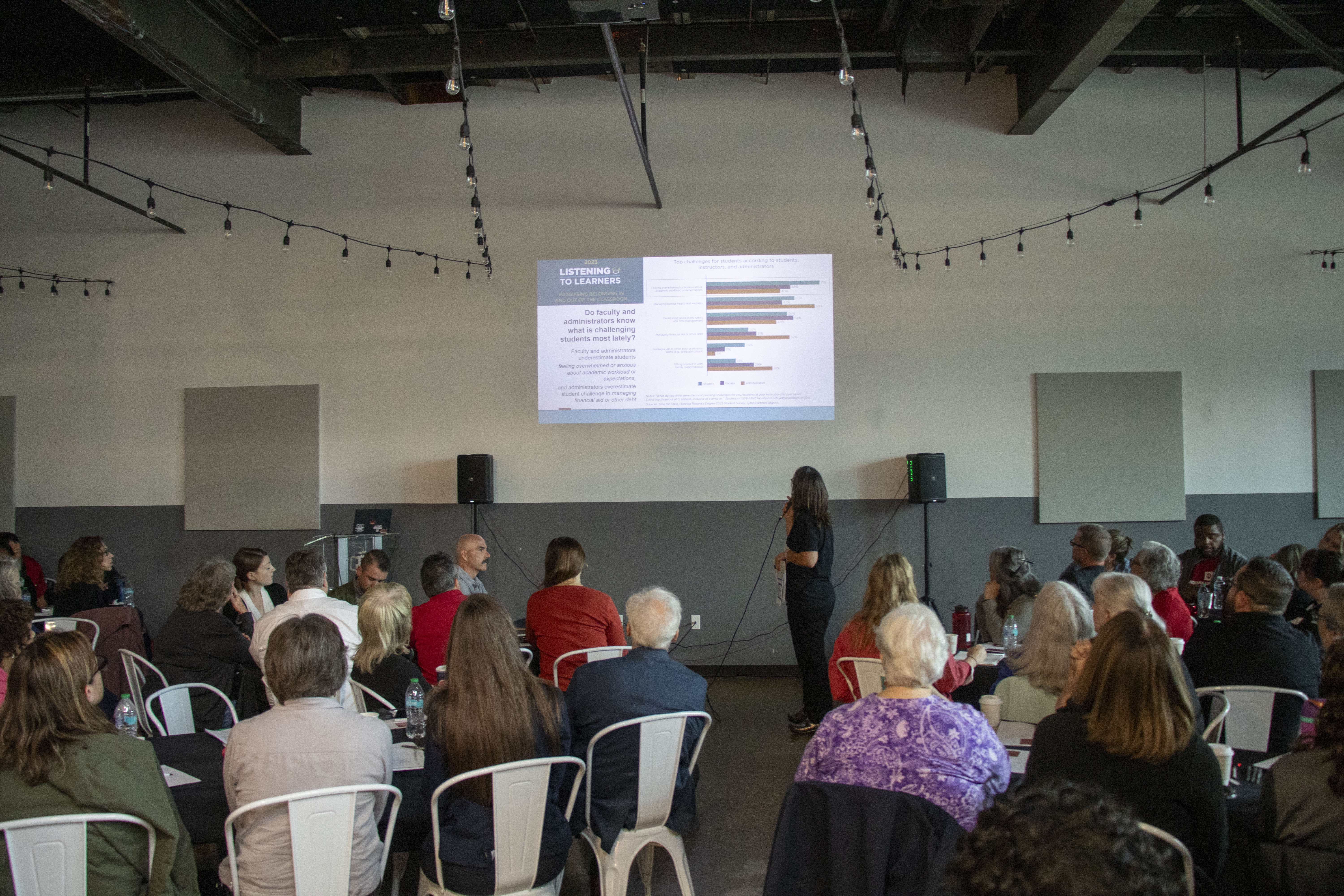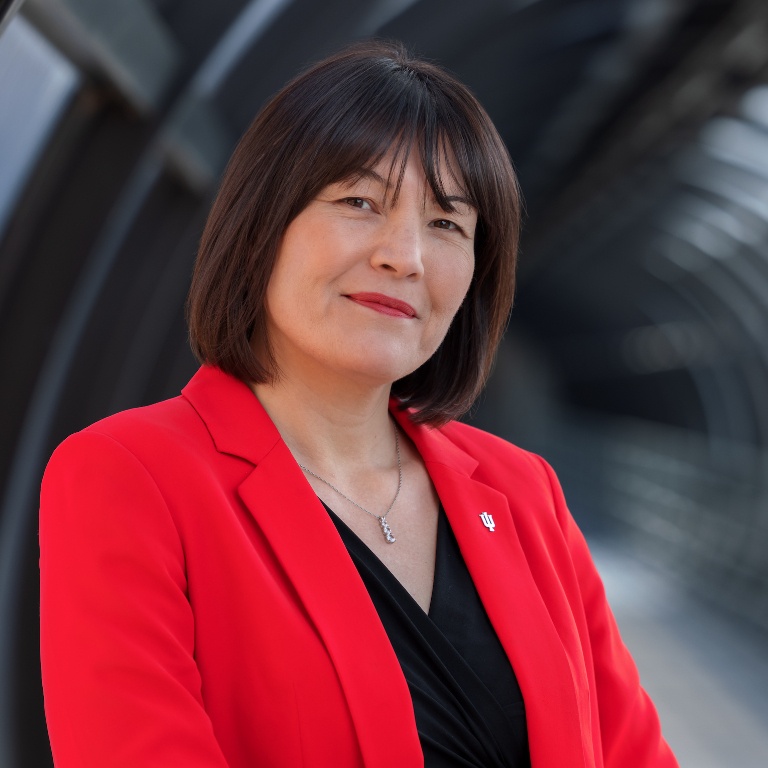To advance IU Indianapolis’s ambitious goals in student success, four new work teams have been assembled to address several key areas. The campus-wide initiative marked its start during a kickoff retreat at 16Tech on September 27.
Organized to address core challenges raised by the Optimizing First-Year Success Taskforce (O1YT), four dedicated teams of staff and faculty will focus on:
- Redesigning the core curriculum
- Improving course completion rates
- Improving academic advising
- Improving career readiness
A strategic approach
The teams are operating through a process inspired by Strategic Doing, a model created by Edward Morrison, a former Purdue University faculty member with a history of corporate consulting. Christina Downey, associate vice chancellor for undergraduate education and dean of University College, explained the model’s significance at targeting so-called “wicked problems.” These are high-stakes, complex issues that impact many kinds of stakeholders and thus require high collaboration within social networks to change.
“In these cases, there is no obvious right way to solve the challenge, so the process brings people together in a structured series of brainstorms and decision-making focused on the aspects of the problem that change makers can directly control,” Downey said. “By finding an entry point into the problem, making logical adjustments and constantly evaluating progress, the group can steadily move through the problem and inspire other stakeholders to make similar changes in their circles of influence.”
The work teams' efforts are connected to the IU 2030 Strategic Plan of enacting a vision for student success. Centered in value, equity, and continuous accountability, the work teams are collaborating and expanding upon the O1YT conversations, with a full year to engage colleagues across campus in curating sustainable change efforts.
The retreat provided attending staff and faculty with an overview of recent student success efforts and successes, framing our progress within our ongoing work to:
- Increase retention and graduation rates
- Improve equity and inclusion
- Enhance undergraduate career outcomes
Identifying the work teams
Downey highlighted the rationale for the four areas of focus for the work teams.
“Our campus has a proud history as a national leader in student success, but with changing perceptions of higher education and shifting needs among students, it is always incumbent upon us to ensure our resources are dedicated to best practice in access and effectiveness,” Downey said. “Course completion rates, academic advising, and career readiness are all things that vary around campus and serve the rapidly changing needs of students and our community, so they are logical areas to focus on for improvement.”
Co-chair positions for each work team were assigned to colleagues who have been known to be campus leaders within each area. Once finalized, co-chairs were asked to nominate individuals they felt would be well-positioned to lead change.
Downey recognized the importance of ensuring varied and equitable selection during team assemblage.
“One important goal in assembling the teams was to try to break down silos—that is, make sure a wide variety of perspectives from different sectors and roles on campus are represented,” Downey said.
Focuses for each work team
Under their appointed leadership, each work team will leverage their expertise and passions to curate a foundation of progress and solutions for specific areas.
The team working to redefine the core curriculum is focused on how student input for strengthening our general education program can be retrieved through surveys, focus groups, design thinking sessions, and other avenues.
In improving course completion rates, another team will emphasize the Center for Teaching and Learning’s evidence-based Culture of Care in Teaching framework, develop methods to heighten departments’ participation in the Culture of Care, and analyze how frequently best teaching practices are being used in classrooms.
The team dedicated to improving equity in academic advising will gear toward auditing and refining processes in use of our advising outreach and records system. The primary hope is to further standardize how the tool is used to effectively serve students.
The team engaging in improving career readiness will document the definition of career readiness in alignment with campus perceptions and continue to pursue the ultimate goal of drafting a cohesive definition of career readiness to aid all campus units in strategizing in areas of improvement.
As the year progresses, Downey says that each work team is scheduled to reconvene at key points to assess progress, discuss what has been learned, and initiate upcoming tasks to be completed.
“Progress is measured continuously, and at all times our co-chairs will keep their team members focused on our guiding visions for each area,” Downey said. “Specifically, a transformative core curriculum, erasing inequities in learning and academic achievement, an advising approach where no student falls through the cracks, and an undergraduate experience with embedded career readiness for all.”




